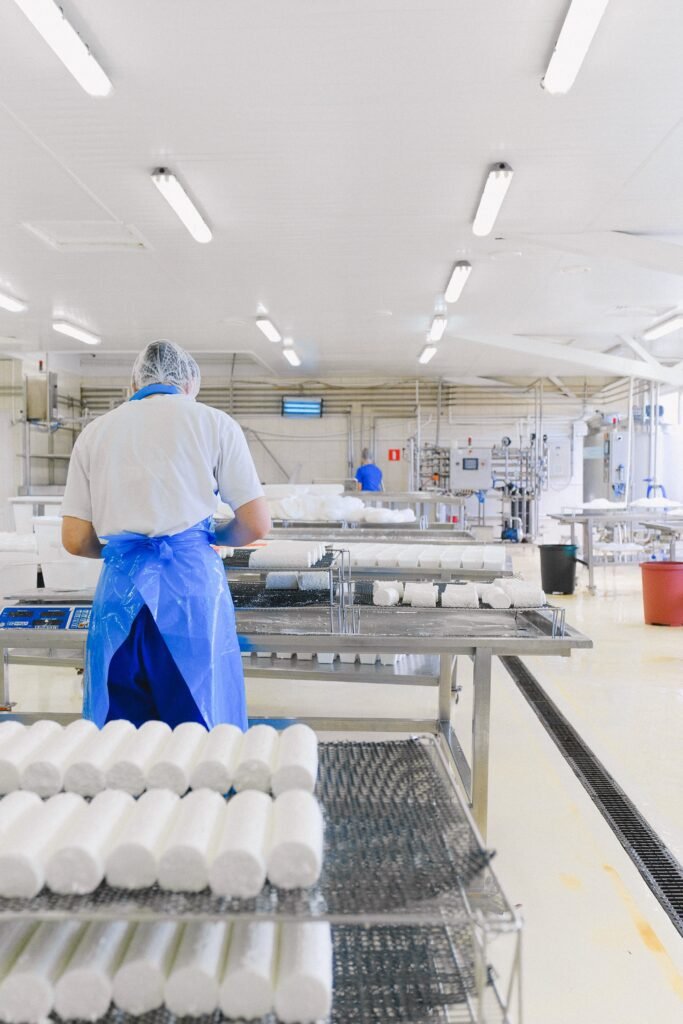
In the ever-evolving landscape of the food industry, artificial intelligence (AI) has emerged as a transformative force, reshaping how we produce, prepare, and consume food. From enhancing efficiency in the supply chain to revolutionizing the dining experience, AI technologies are playing a pivotal role in creating a more intelligent and innovative culinary world.
1. Smart Supply Chain Management:
AI streamlines supply chain processes, optimizing inventory management, and reducing waste. Predictive analytics powered by AI algorithms help food businesses forecast demand more accurately, ensuring a consistent supply of fresh ingredients while minimizing surplus.
2. Personalized Nutrition and Menus:
AI-driven algorithms analyze consumer preferences, dietary restrictions, and health data to offer personalized nutrition recommendations. Restaurants and food delivery services leverage this technology to create customized menus, providing a more tailored dining experience for individual tastes and nutritional needs.
3. Culinary Creativity with Recipe Generation:
AI algorithms can analyze vast databases of recipes, ingredients, and flavor profiles to generate unique and innovative recipes. Chefs and food enthusiasts can explore new culinary horizons by incorporating AI-generated suggestions, leading to the creation of dishes that blend tradition with cutting-edge creativity.
4. Precision Agriculture for Sustainable Practices:
AI aids in precision agriculture by optimizing crop yields, monitoring soil health, and managing irrigation systems. This not only enhances efficiency in food production but also contributes to sustainable practices by minimizing resource use and reducing environmental impact.
5. Smart Kitchen Appliances and Cooking Assistants:
The integration of AI in kitchen appliances and cooking assistants brings automation and intelligence to home kitchens. AI-powered devices can assist with meal planning, recipe suggestions, and even control cooking processes, making home cooking more convenient and enjoyable.
6. Enhanced Food Safety Measures:
AI plays a crucial role in ensuring food safety by monitoring and analyzing data throughout the supply chain. From detecting contaminants to tracking temperature fluctuations during transportation, AI technologies provide real-time insights that help prevent foodborne illnesses and ensure the quality of food products.
7. Efficient Restaurant Operations:
In the restaurant industry, AI streamlines operations by automating routine tasks such as order processing, inventory management, and reservation systems. This allows restaurant staff to focus on providing a more personalized and efficient dining experience for customers.
8. AI-Infused Customer Service:
Chatbots and virtual assistants powered by AI enhance customer service in the food industry. From taking online orders to providing real-time assistance, AI-driven customer service solutions contribute to a seamless and efficient interaction between businesses and consumers.
9. Predictive Maintenance in Food Processing:
For food processing facilities, AI facilitates predictive maintenance by analyzing equipment data to anticipate potential breakdowns. This proactive approach minimizes downtime, ensures consistent production, and contributes to overall operational efficiency.
10. Food Waste Reduction Strategies:
AI technologies contribute to reducing food waste by optimizing inventory, predicting demand accurately, and implementing dynamic pricing strategies. These initiatives help businesses minimize surplus, align production with actual consumption, and contribute to sustainability goals.
As artificial intelligence continues to evolve, its integration into the food industry holds immense potential for innovation, sustainability, and improved consumer experiences. The marriage of technology and culinary arts is ushering in a new era, where AI is not just a tool but a key ingredient in shaping the future of food.


